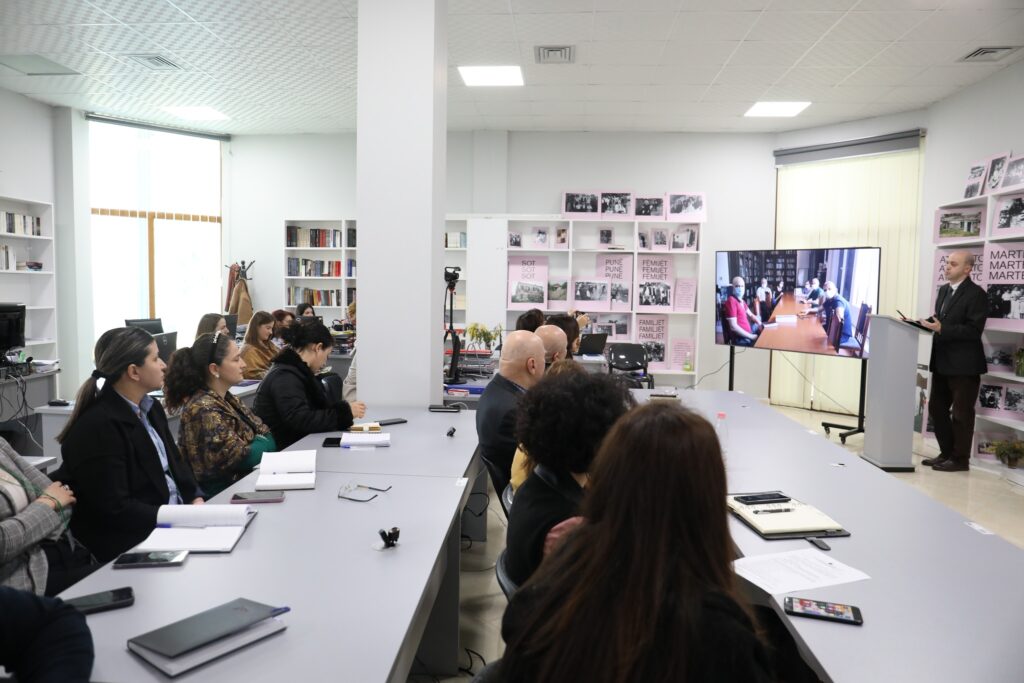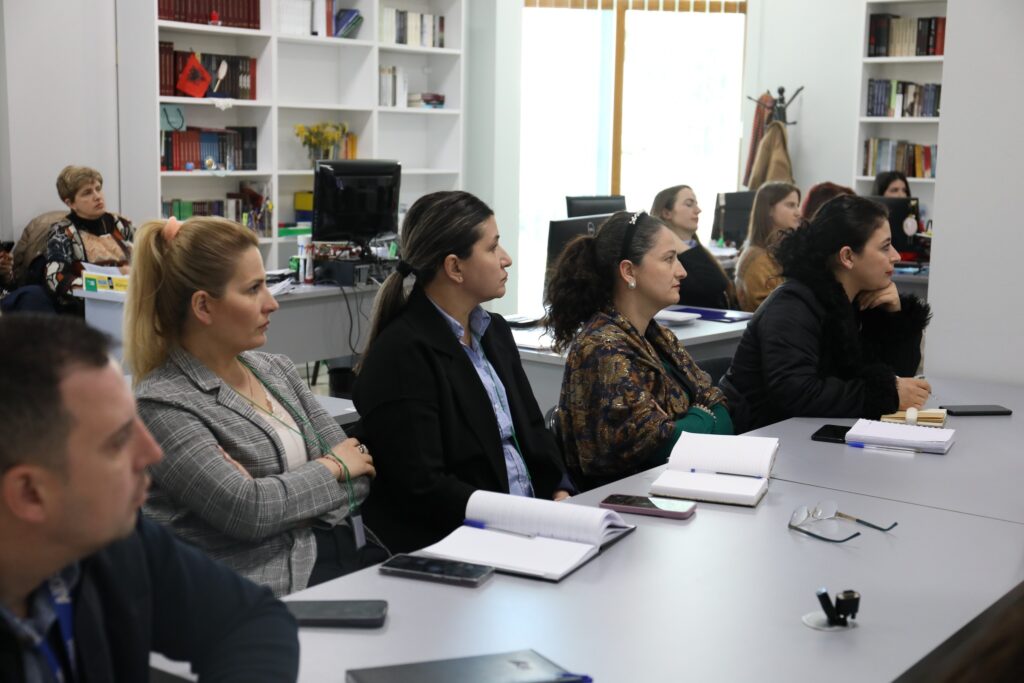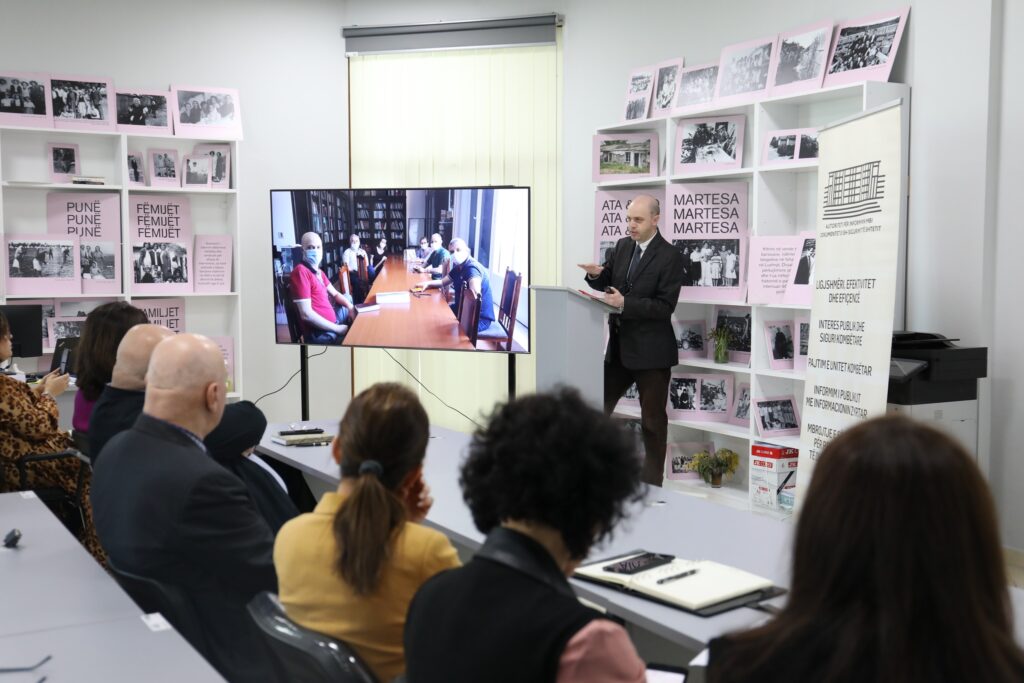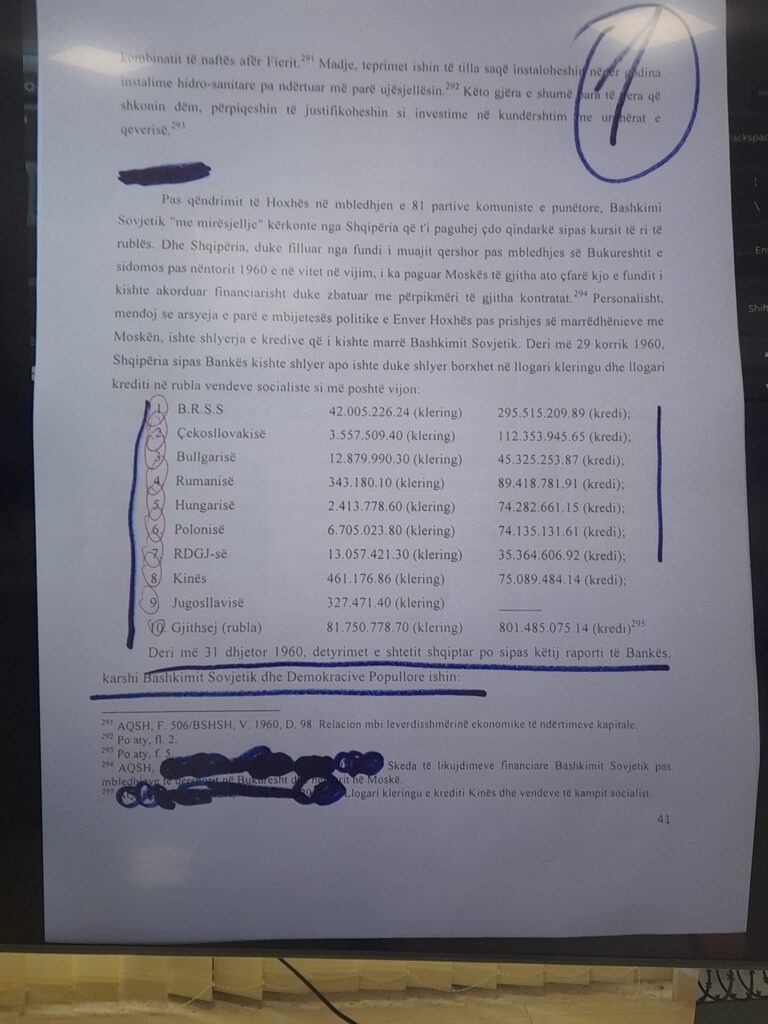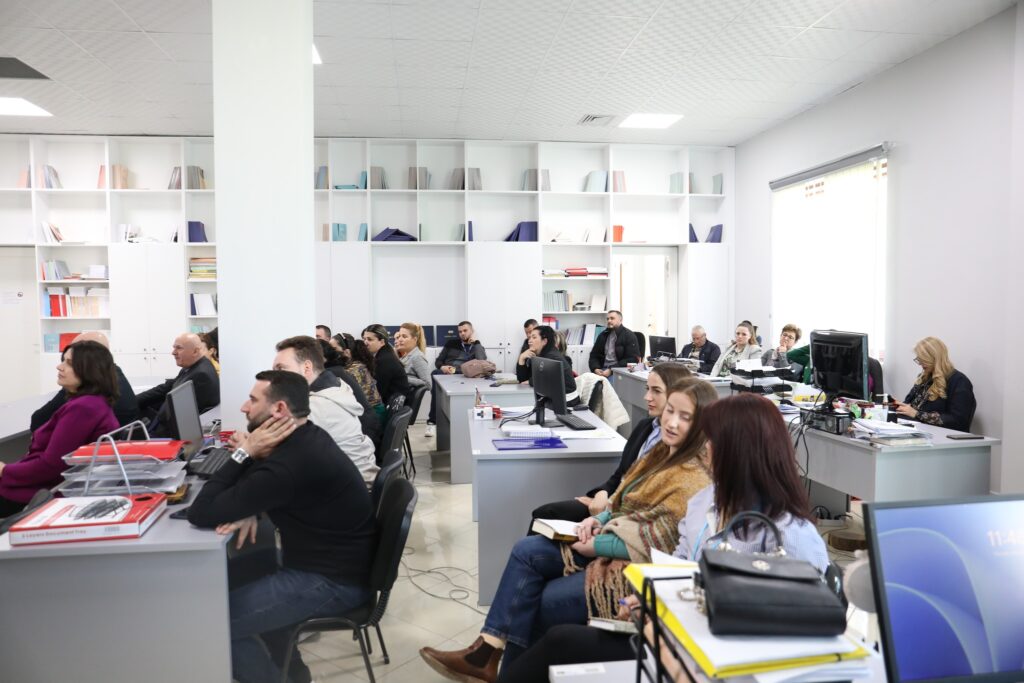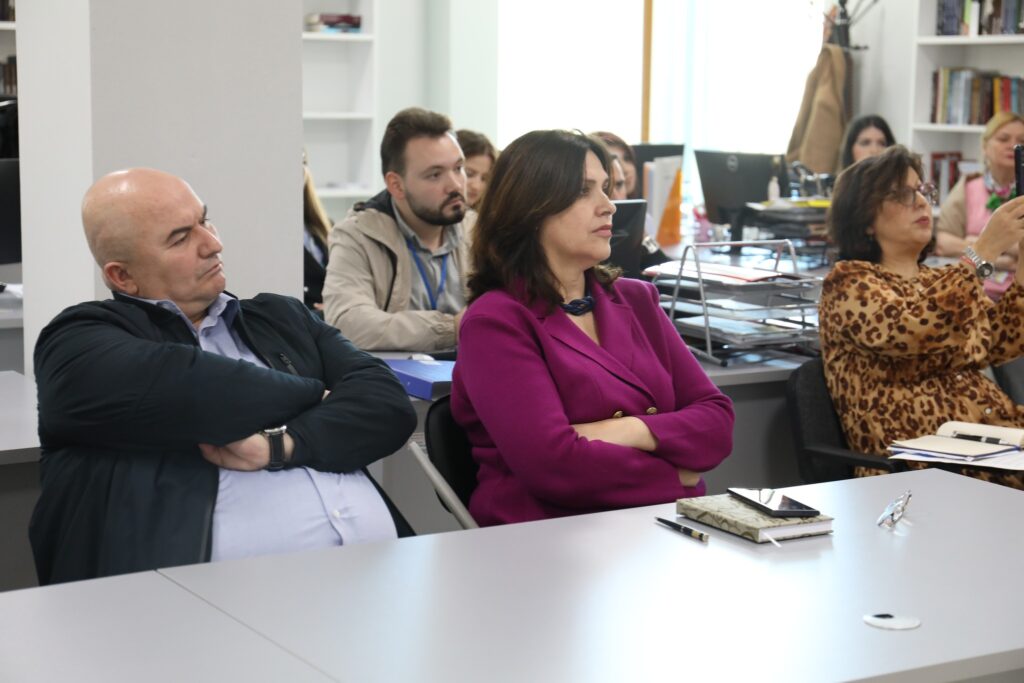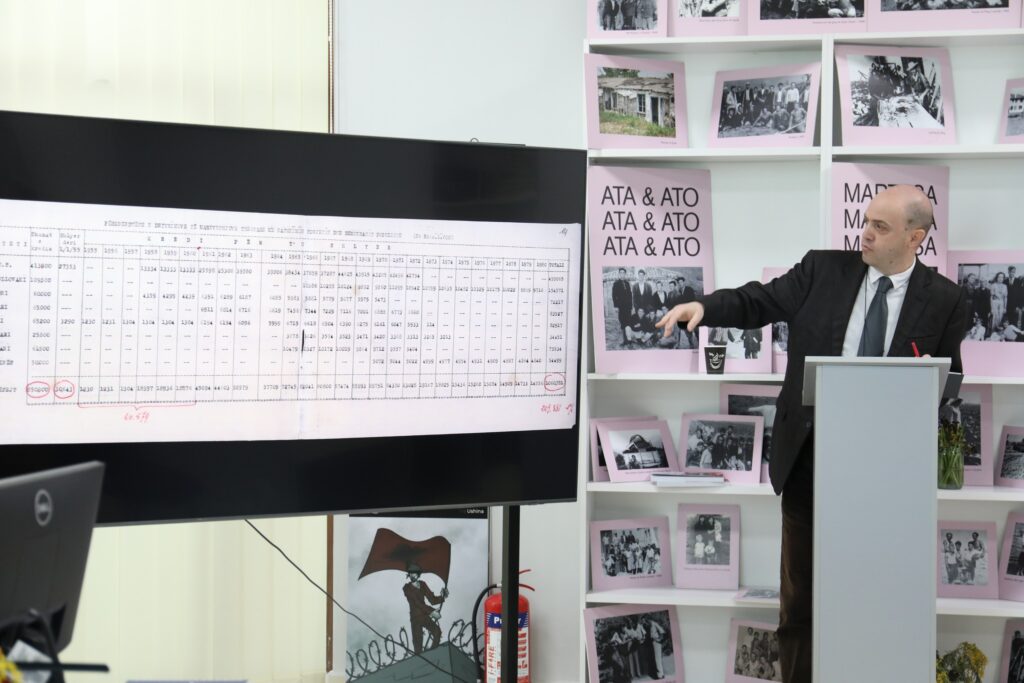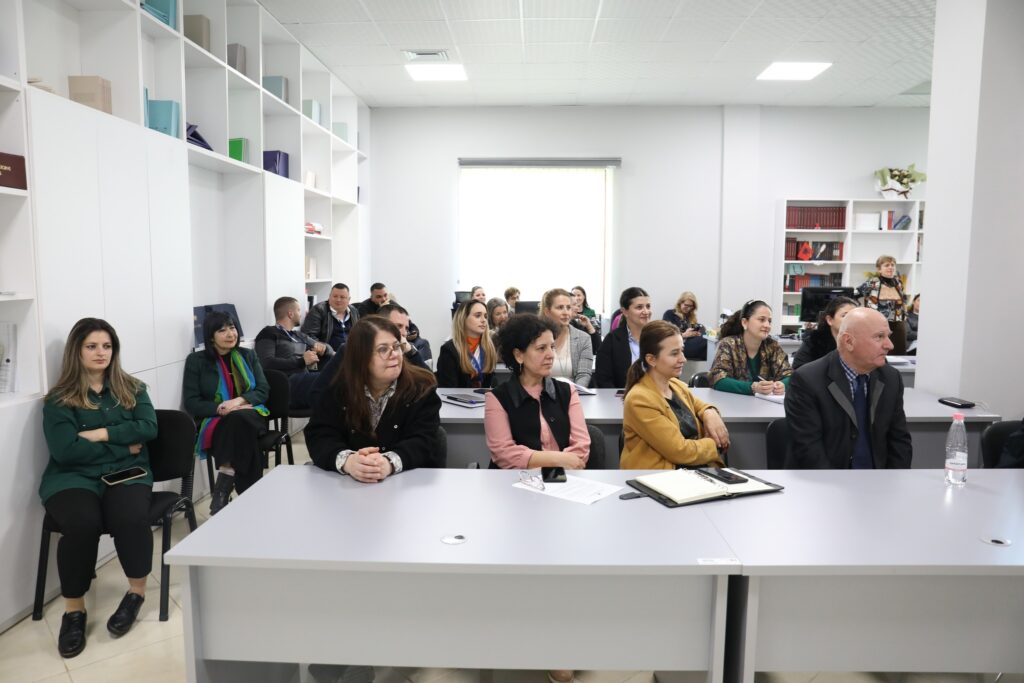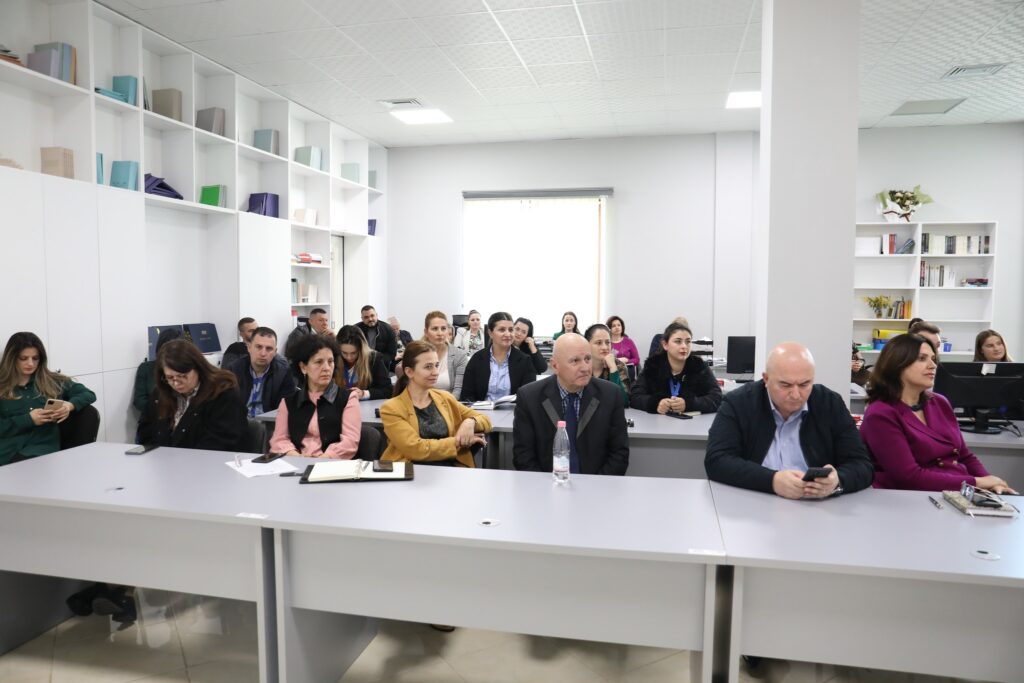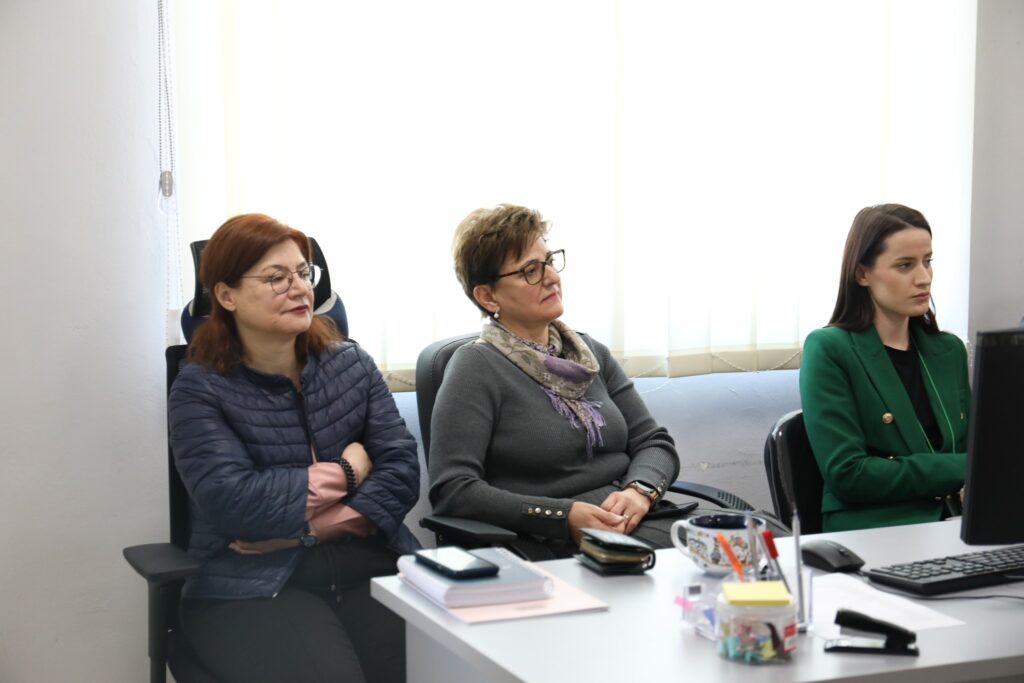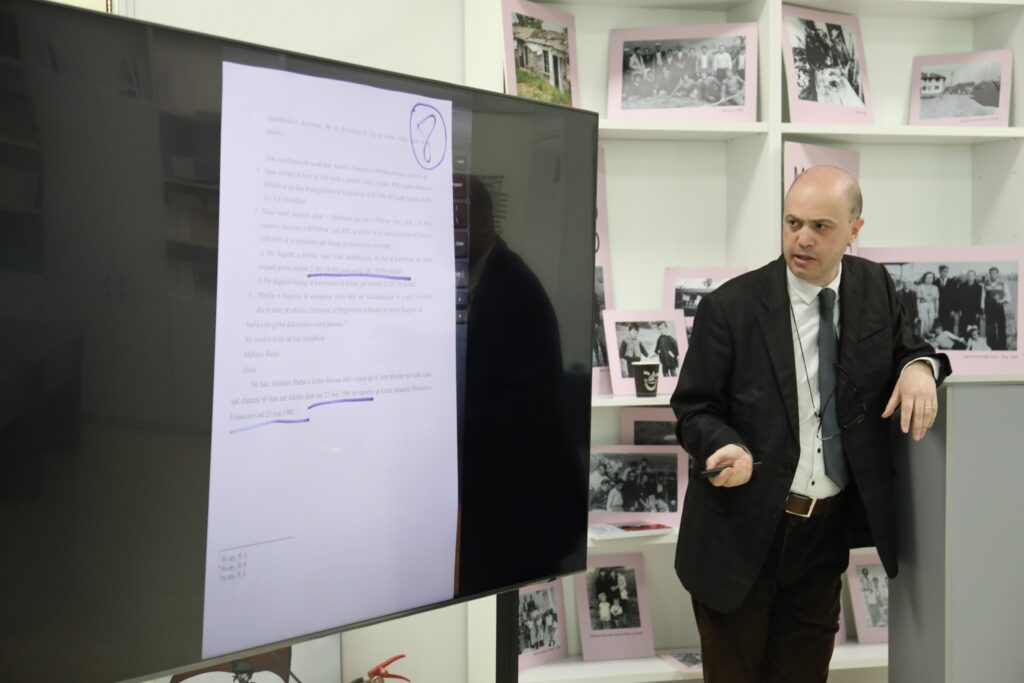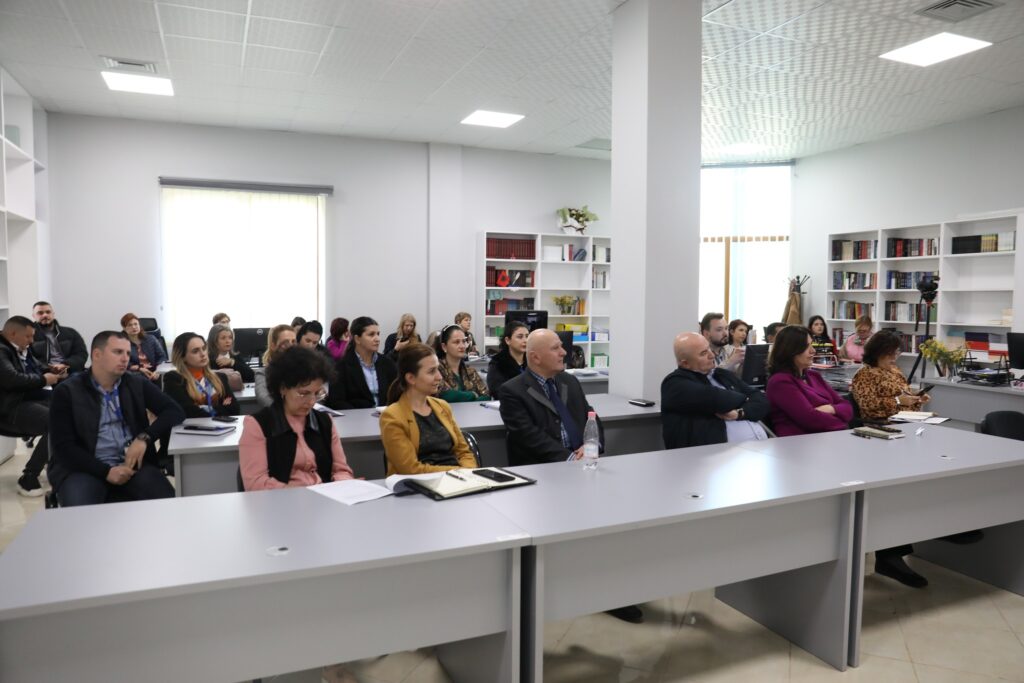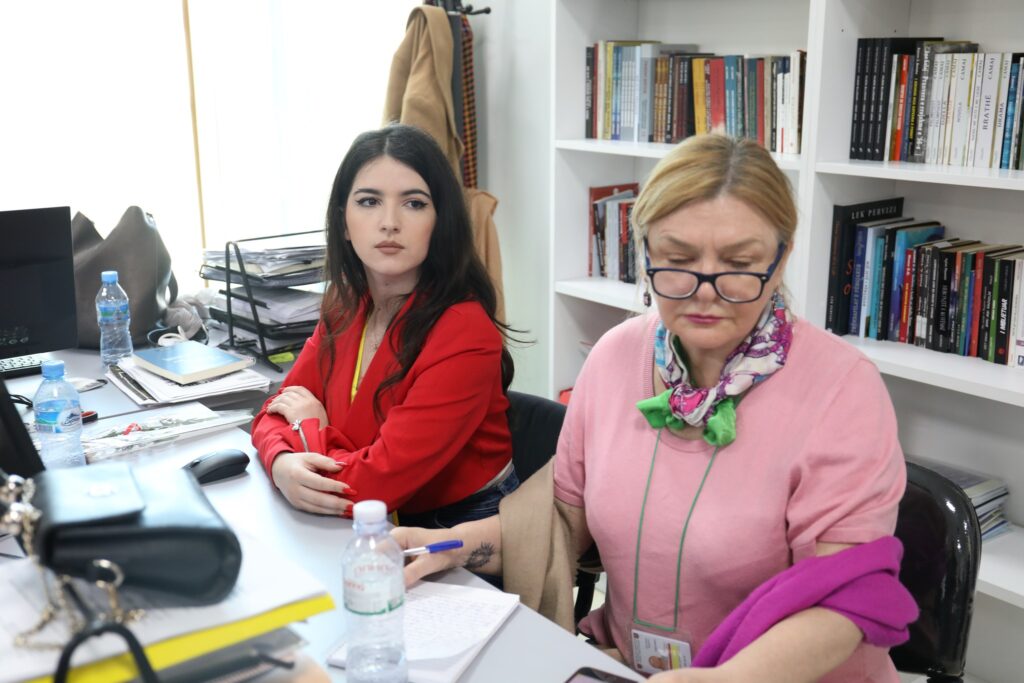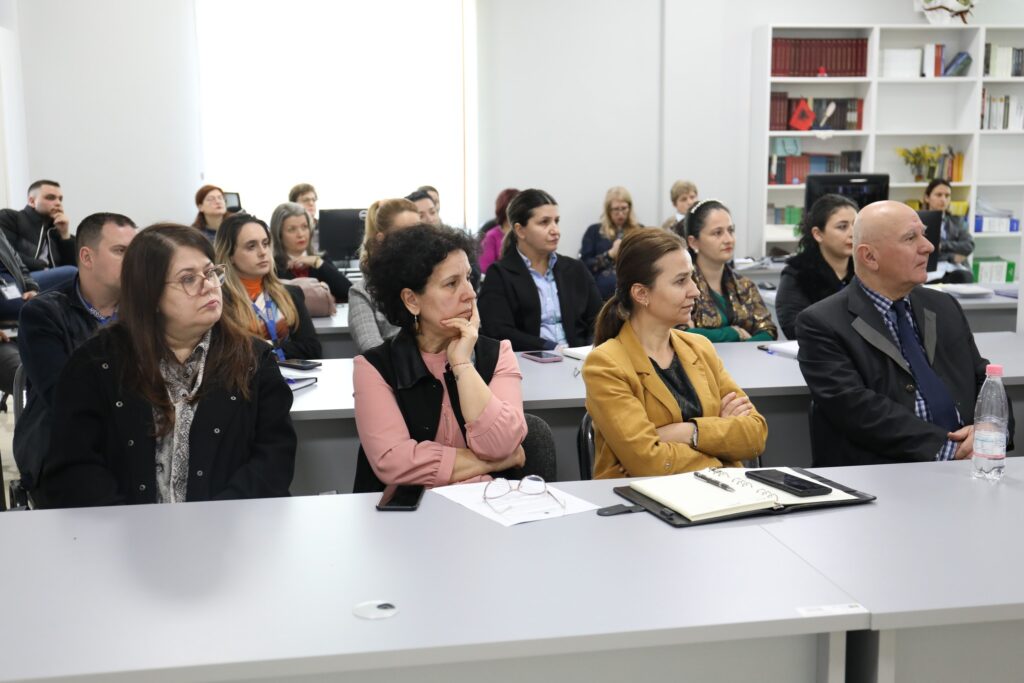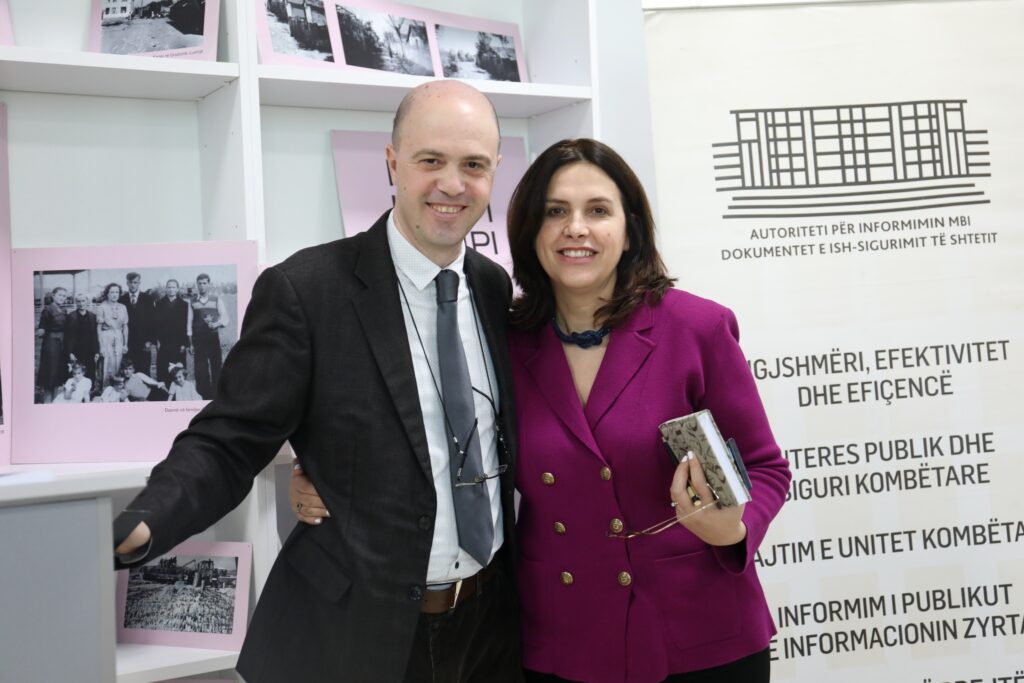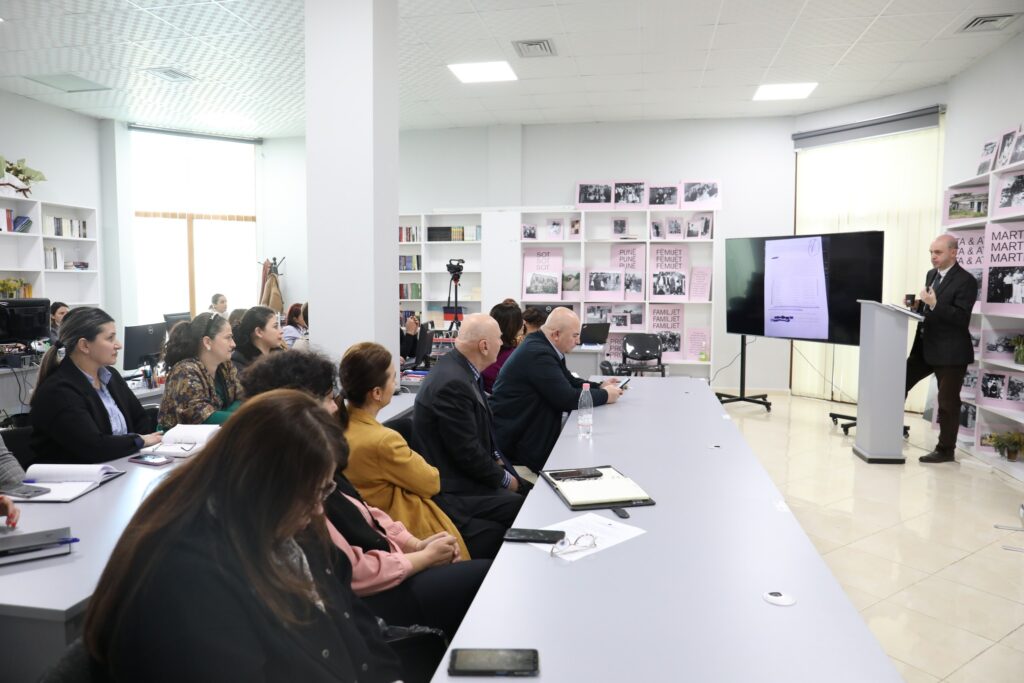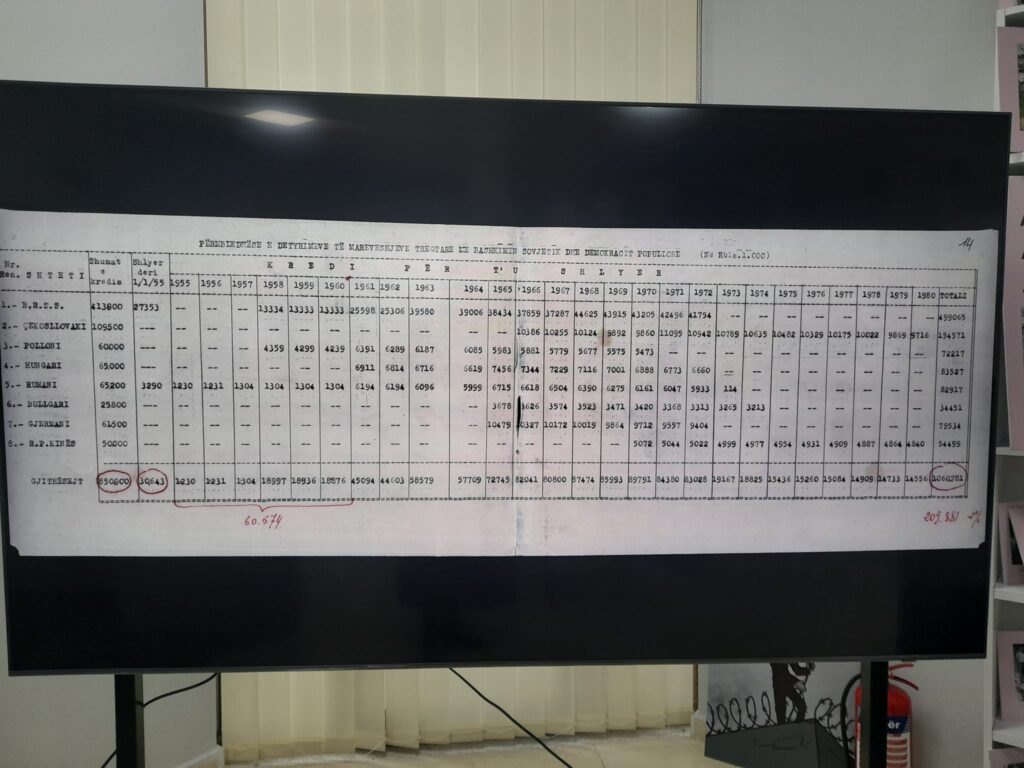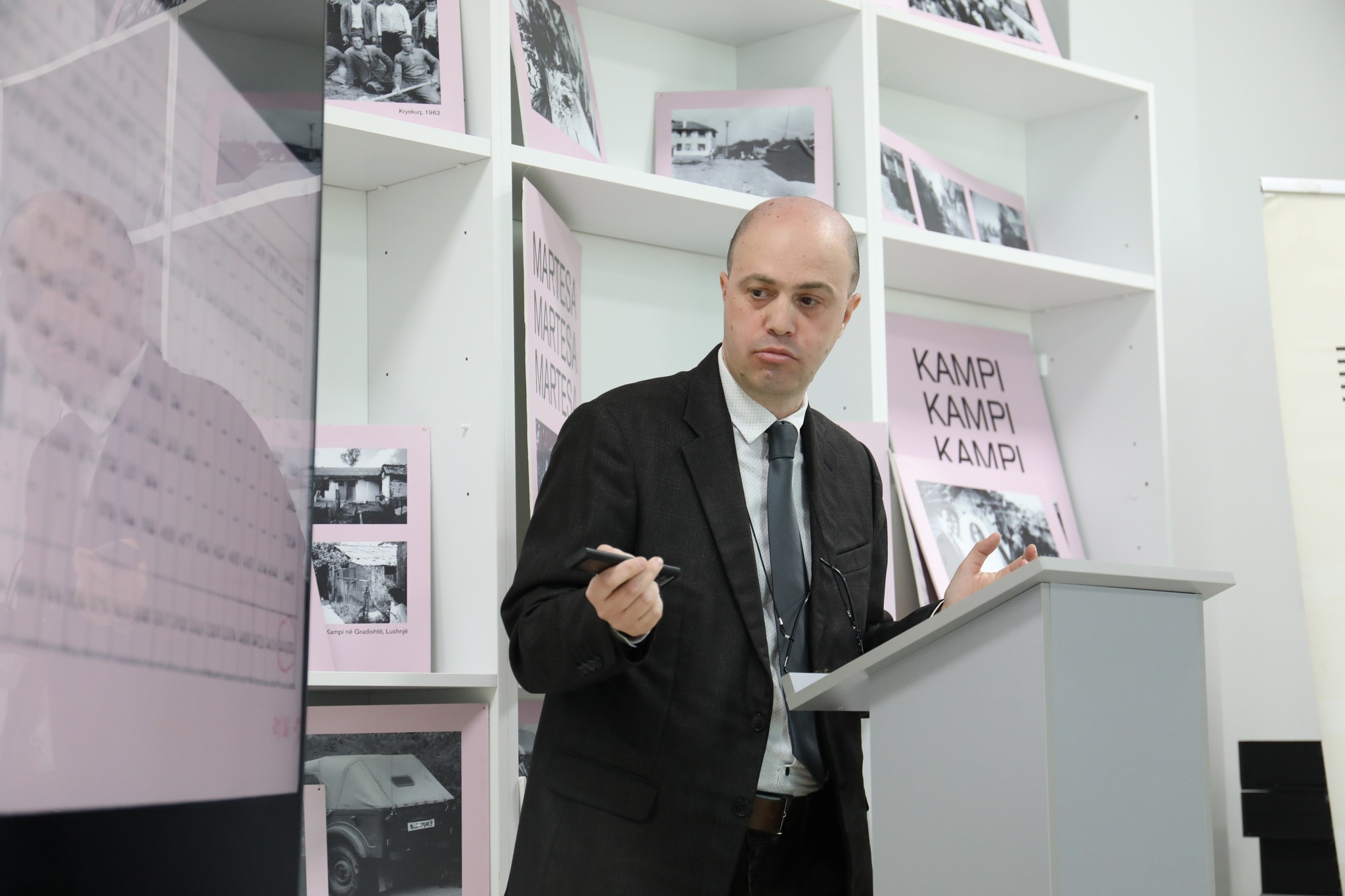To repay its debts, the state even took people’s wedding rings.
Today at AIDSSH, Associate Professor Dr. Gjon Boriçi delivered a lecture on his latest scholarly book, *“The Beginnings of Albanian-Chinese Political and Economic Relations 1954–1960.”* In his speech, he stated:
“This book is an effort to present as comprehensively as possible the beginnings of relations between the two countries in the second half of the 1950s, as well as to explain the reasons for the full rapprochement between them.”
He further focused on key moments in Albania’s diplomatic relations with the countries of the Bloc, as well as specific phases of the economic crisis that consequently deepened Albania’s debts to countries such as the USSR, Czechoslovakia, Poland, Hungary, Romania, Bulgaria, and Germany. According to Prof. Boriçi, the total debt amounted to around 2 billion dollars, or 2 million rubles for a population of 1.3 million.
Your translation is already accurate and clear. A slightly smoother version could be:
A defining feature of political Albania during the communist era, particularly in the second half of the 1950s, was the severing of its very close relations with the Soviet Union and, eventually, the forging of strong ties with China. The officially stated reason was ideological disagreement, while the inter-state dynamics and the true reasons for the split are explained in detail, case by case, in this monograph.
“Ideology has been the fundamental factor for the longevity of power, as ideology served as the ‘veil’ of authority. Diplomatic relations also determined the next ‘sponsor,’ since in politics there exists the theory of the ‘benefactor’s role.’ International relations have shaped the philosophy of domestic policy as well, which explains Enver Hoxha’s resignation from the role of Prime Minister,” Boriçi further stated.
Historian Boriçi views the Cold War as the “experience of experiences,” and he notes that the reason Albania was not used as “cannon fodder” was that it began to repay its debts. At that time, according to documents, there was a massive collection of wedding rings, earrings, gold necklaces, and all other valuables from the population.
The author examines this period beginning in 1954, when spectacular political upheavals began in the Socialist Camp and Enver Hoxha was forced to resign as Prime Minister under Soviet pressure. Professor Gjon Boriçi’s monograph covers the entire span of the extraordinary and delicate relations between the People’s Republic of Albania and the People’s Republic of China from 1954 to 1960.
The open lecture is a series of lessons organized by AIDSSH with a scholarly focus on events and facts from the period 1944–1991, aiming to shed light on the past. The Authority will dedicate a section on its online platform to this initiative and invites researchers in history, economics, law, and related fields to join this important program, which enriches and educates us.


